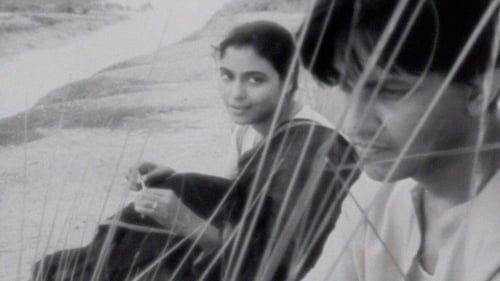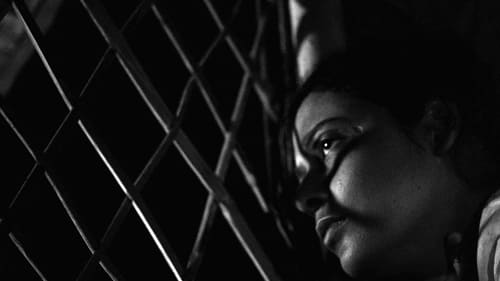Ritwik Kumar Ghatak
Birth : 1925-11-04, Dacca, East Bengal, British India
Death : 1976-02-06
History
Ritwik Kumar Ghatak was a Bengali filmmaker and script writer. Along with prominent contemporary Bengali filmmakers Satyajit Ray and Mrinal Sen, his cinema is primarily remembered for its meticulous depiction of social reality. Although their roles were often adversarial, they were ardent admirers of each other's work and, in doing so, the three directors charted the independent trajectory of parallel cinema, as a counterpoint to the mainstream fare of Hindi cinema in India. Ghatak received many awards in his career, including National Film Award's Rajat Kamal Award for Best Story in 1974 for his Jukti Takko Aar Gappo and Best Director's Award from Bangladesh Cine Journalist's Association for Titash Ekti Nadir Naam. The Government of India honoured him with the Padma Shri for Arts in 1970.

Production Design
Ramkinkar Baij is an incomplete personality study or documentary on sculptor Ramkinkar Baij created by legendary filmmaker Ritwik Ghatak. He started creating the film in 1975. The film was almost complete but it still remained unfinished for the death of Ritwik Ghatak.

Screenplay
Ramkinkar Baij is an incomplete personality study or documentary on sculptor Ramkinkar Baij created by legendary filmmaker Ritwik Ghatak. He started creating the film in 1975. The film was almost complete but it still remained unfinished for the death of Ritwik Ghatak.

Director
Ramkinkar Baij is an incomplete personality study or documentary on sculptor Ramkinkar Baij created by legendary filmmaker Ritwik Ghatak. He started creating the film in 1975. The film was almost complete but it still remained unfinished for the death of Ritwik Ghatak.

Himself
Ramkinkar Baij is an incomplete personality study or documentary on sculptor Ramkinkar Baij created by legendary filmmaker Ritwik Ghatak. He started creating the film in 1975. The film was almost complete but it still remained unfinished for the death of Ritwik Ghatak.

Music
Four men, each peculiar in his own way, embark on a quest to reason with the estranged wife of the protagonist. This film is considered to be Ghatak's autobiographical film.

Nilkantha Bagchi
Four men, each peculiar in his own way, embark on a quest to reason with the estranged wife of the protagonist. This film is considered to be Ghatak's autobiographical film.

Writer
Four men, each peculiar in his own way, embark on a quest to reason with the estranged wife of the protagonist. This film is considered to be Ghatak's autobiographical film.

Director
Four men, each peculiar in his own way, embark on a quest to reason with the estranged wife of the protagonist. This film is considered to be Ghatak's autobiographical film.

Tilakchand
An in-depth look at the lives and struggles of the community of fishermen living by the river Titash.

Writer
An in-depth look at the lives and struggles of the community of fishermen living by the river Titash.

Director
An in-depth look at the lives and struggles of the community of fishermen living by the river Titash.

Director
The film brings to the screen the determination of the common man of Bangladesh to stand up to tyranny and win his priceless liberty back.

Director
Amar Lenin is a 1970 black and white documentary film directed by film director Ritwik Ghatak made for Government of West Bengal in the centenary year (1970) of the birth of Vladimir Lenin.

Writer

Director
The film explains the details of the research scheme instituted by the Government of India for the benefit of young talented scientists. Under the Scheme, Government encourages students with a scientific bent of mind by awarding scholarships from the B.Sc. to Ph.D. degrees.

Writer
After an old college friend offers him a job at an iron foundry, the upright and honest Ishwar leaves a shanty town on the outskirts of Calcutta where he lives with a group of refugees from East Bengal. With plans to forge a solid living for himself, sister Sita and Abhiram, an orphaned boy he offers a home to, Ishwar is accused of selling out and deserting his people.

Music teacher
After an old college friend offers him a job at an iron foundry, the upright and honest Ishwar leaves a shanty town on the outskirts of Calcutta where he lives with a group of refugees from East Bengal. With plans to forge a solid living for himself, sister Sita and Abhiram, an orphaned boy he offers a home to, Ishwar is accused of selling out and deserting his people.

Director
After an old college friend offers him a job at an iron foundry, the upright and honest Ishwar leaves a shanty town on the outskirts of Calcutta where he lives with a group of refugees from East Bengal. With plans to forge a solid living for himself, sister Sita and Abhiram, an orphaned boy he offers a home to, Ishwar is accused of selling out and deserting his people.

Screenplay
Darpa, a cunning man, asks Rajkumari to pretend to be Princess Rajkanya Chandralekha so that he can keep all her riches for himself. However, when she realises the truth, she ensures all his plans fail.

Director
FTII Diploma film for acting students of 1964-65 by Ritwik Ghatak

Music
FTII Diploma film for acting students of 1964-65 by Ritwik Ghatak

Script
FTII Diploma film for acting students of 1964-65 by Ritwik Ghatak

Story
FTII Diploma film for acting students of 1964-65 by Ritwik Ghatak

Screenplay
Life and disciples of legendary Indian classical musician and teacher, 'Guru' of Pandit Ravishankar, 'Baba' Ustad Alauddin Khan.

Director
Life and disciples of legendary Indian classical musician and teacher, 'Guru' of Pandit Ravishankar, 'Baba' Ustad Alauddin Khan.

Producer
Through the microcosmic perspectivising of a group of devoted and uncompromising IPTA workers, Ghatak with his signature style touches on varied issues of partition, idealism, corruption, the interdependence of art and life, the scope of art, and class-struggle.

Screenplay
Through the microcosmic perspectivising of a group of devoted and uncompromising IPTA workers, Ghatak with his signature style touches on varied issues of partition, idealism, corruption, the interdependence of art and life, the scope of art, and class-struggle.

Director
Through the microcosmic perspectivising of a group of devoted and uncompromising IPTA workers, Ghatak with his signature style touches on varied issues of partition, idealism, corruption, the interdependence of art and life, the scope of art, and class-struggle.

Screenplay
The tragic story of the beautiful daughter of a middle-class refugee family from East Pakistan. Neeta, the protagonist, sacrifices everything for her unappreciative family.

Director
The tragic story of the beautiful daughter of a middle-class refugee family from East Pakistan. Neeta, the protagonist, sacrifices everything for her unappreciative family.

Writer
Two men take shelter in a derelict mansion situated in the countryside during a storm. One of the men suddenly becomes aware that he once visited this mansion in a past life; he recounts a story about when he was Anand, a painter, who fell in love with a tribal girl named Madhumati.

Writer
Kanchan, all of eight years old, is always up to pranks and mischief in his village home. He finds his father a cruel demon who keeps his mother oppressed and imprisoned. In his dreams, the big city is El Dorado, until he reaches there.

Director
Kanchan, all of eight years old, is always up to pranks and mischief in his village home. He finds his father a cruel demon who keeps his mother oppressed and imprisoned. In his dreams, the big city is El Dorado, until he reaches there.

Writer
Bimal is a taxi-driver in a small provincial town. He lives alone, his taxi (an old 1920 Chevrolet jalopy which he named Jagaddal) is his only companion and, although very battered, it is the apple of Bimal's eye.

Director
Bimal is a taxi-driver in a small provincial town. He lives alone, his taxi (an old 1920 Chevrolet jalopy which he named Jagaddal) is his only companion and, although very battered, it is the apple of Bimal's eye.

Screenplay
The story is about a house consisting of three families who live in it. It is three stories linked by the house.

Director
A documentary made by Ghatak observing the life of the Adivasis.

Screenplay
Ramu, eldest son a family of migrants, is a fresh graduate searching for a job like many others in post-partition Calcutta.

Director
Ramu, eldest son a family of migrants, is a fresh graduate searching for a job like many others in post-partition Calcutta.

Assistant Director
After Partition, a large group of farmers from East Bengal have to migrate to Calcutta.

After Partition, a large group of farmers from East Bengal have to migrate to Calcutta.












